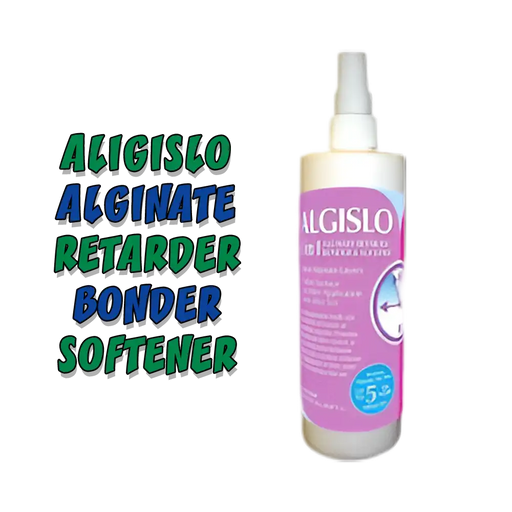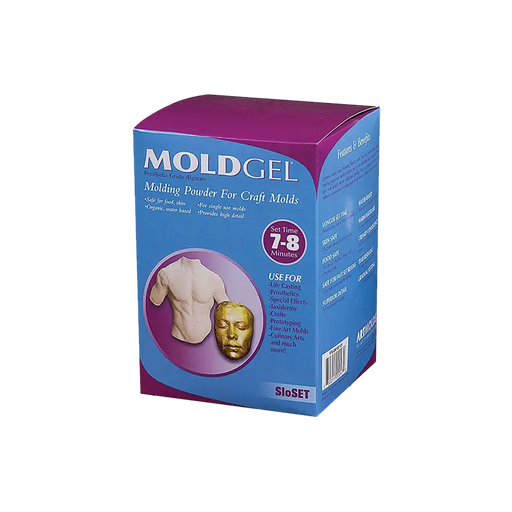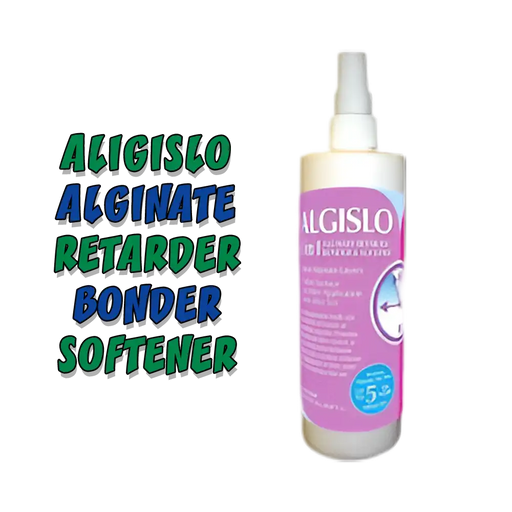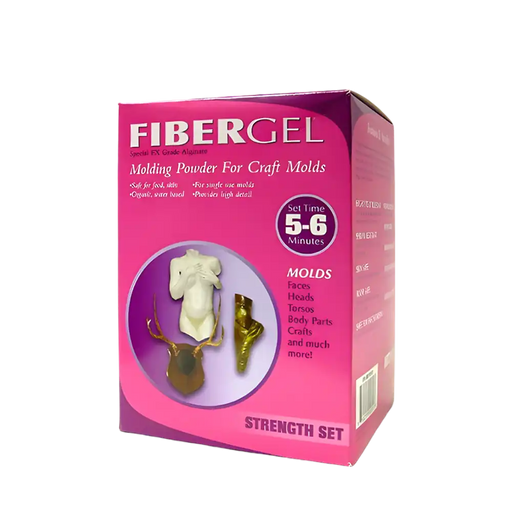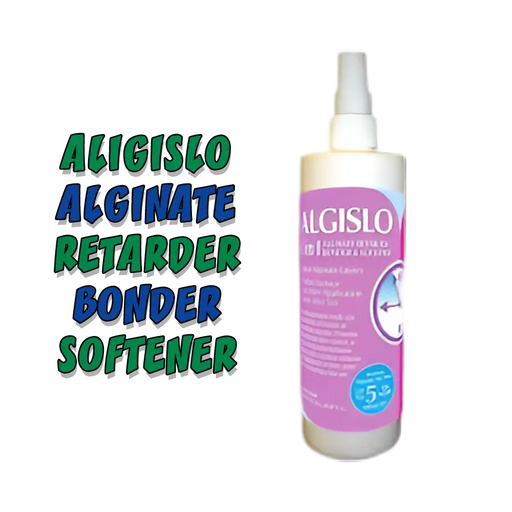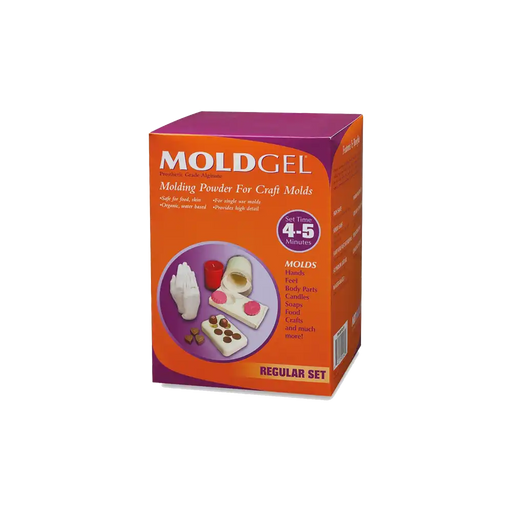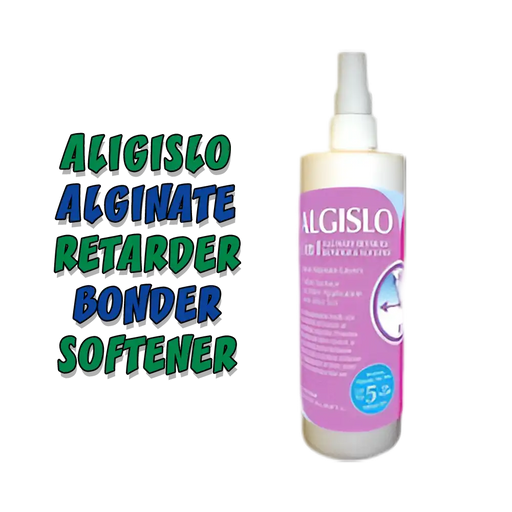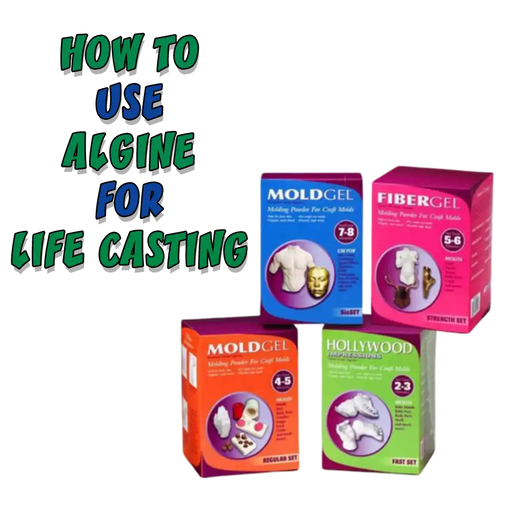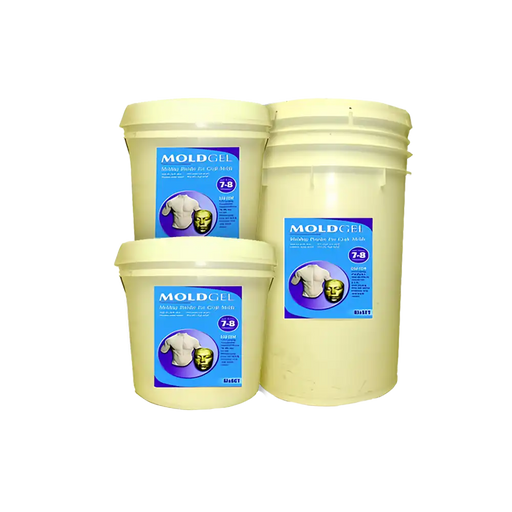We offer 24-hour chat support
Alginate and Moulage
Alginate Origins
Today's life casting alginates evolved from dental formulations known as dental impression material. In fact the alginate definition is usually referred to as impression material in dentistry. However alginates are also widely used in the medical field for dressings and wound care and also in the food industry as a food supplement. Read more about it on Wikepedia.
Alginate Formulation
Alginate used in life casting and mold making is distinguished by slower setting times compared to dental formulas. Most formulas consist of a raw material known as sodium alginate which is derived from seaweed, specifically dried kelp (Read how alginate it is used and is made). It is then combined with other materials to make a gel-like substance when mixed with water. However, calcium and potassium alginate salts are also used as raw materials in specialized formulas.
Two Groups
EnvironMolds produces two groups of impression materials formulated for skin-safe casting.
The first group is a silica-free formula which is both environmentally and user friendly. This family has a softer set, which is ideal for casting babies and small children as it is very gentle on the model. The silica-free formula provides a much greater coverage as its mix ratio is 1-part powder to 7-parts water, (compared to traditional formulas using 1 part powder to 3-parts water) making it the most economical alginate formula on the market when valued by volume produced.
The second class of alginates is the traditional formula which provides for a firmer set due to its clay fillers. But the traditional formula has the classic mix ratio of 1-part powder to 3-parts. Thus, it has a lesser coverage by pound than the silica-free family. But its higher strength makes it the better choice for larger molds as they are less apt to tear.
EnvironMolds also offers FiberGel brand which contains fiber in the formula to improve tear strength and to hold moisture which significantly delays shrinkage. This is an excellent alginate formula for larger molds and life castings.
Tips for Use
Water-based mold making formulas are known as waste molds as they usually only can be used for one, perhaps two castings because the mold shrinks over time as the water evaporates. Thus, you need to cast into your mold within 3 hours for best results. The exception to this is our FiberGel product, which allows for a 12-hour delay before noticeable shrinking. Read about the effect in the Art Casting Journal.
Here are a few other things you should know about using alginate art molds:
- Set time can be varied by changing the thickness of the material and the water temperature. Thicker, warmer mixtures take longer to set than cooler, thinner mixtures. The manufacturer will have their recommendations on the package; however, you can best achieve the results you want by experimenting with and testing different thicknesses and temperatures.
- You can pour almost any water-based material into the mold to make a cast, but if you use a casting material that generates heat, the heat will turn the water in your mold to steam and damage both the mold and the cast.
Moulage
We also offer a reusable impression material known as Moulage. It is also skin-safe, but is heated to melt it and then applied to the subject. After use, moulage can be remelted and reused.
More Information
For more information on selecting the correct alginate product and the correct amounts please read the Selection Table.
Important: please read this article on the effects of hard water before using any of the alginate products. The use of hard water can ruin your mold making mix. Its symptoms are a mixture that will not mix smoothly. It often appears to look a little like as cottage cheese or oatmeal.
MoldGel Alginate SILFREE - Slo Set 7-8 Min Set
EnvironMoldsREAD How Alginate Is Made The Healthiest -- Most Environmental Friendly Mold Making Impression Material Alginate AvailableHIGHLIGHTS: Health Frie...
View full detailsHollywood Impressions SILFREE - Fast Set 2-3 Min Set
EnvironMoldsREAD How Alginate Is Made The Healthiest -- Most Environmental Friendly Mold Making Impression Material Available HIGHLIGHTS: 2-3 Minute Set Time H...
View full detailsFiberGel E F/X Grade Alginate - Hi Tear Strength
EnvironMoldsRead How Alginate Is Made FiberGel alginate impression material is formulated for professional high-production, high-end detailed E F/X work. Fiber...
View full detailsMoldGel Alginate SILFREE - Regular Set 4-5 Min Set
EnvironMoldsREAD How Alginate Is Made The Healthiest -- Most Environmental Friendly Mold Making Impression Material Alginate AvailableHIGHLIGHTS: Health Frien...
View full detailsMoldGel Alginate Regular Set 4-5 min Traditional Formula
EnvironMoldsRead How Alginate Is Made MoldGel : Regular Set with a 4-5 Minutes Set is ArtMolds' traditional formula - extra strong, too.&...
View full detailsMoldGel Alginate SloSet 7-8 min Traditional Formula
EnvironMoldsRead How Alginate Is Made MoldGel : Sloset with a 7-8 Minutes Set is ArtMolds' traditional formula - extra strong, too.  ...
View full detailsAlgislo - Alginate Miracle - Retarder / Binder / Cleaner 8oz
EnvironMoldsA real studio beakthrough - ArtMolds has created the 3-in-1 alginate control formula. A must have for anyone who uses alginate. This is an indispen...
View full detailsBEST BUY - LifeMold Silica Free Alginate 3-4 Min Set
EnvironMoldsLifemold is health smart mold making and green too!. Alginate impression material for life casting use and it is good for the environment too one ...
View full detailsAlgiSlo - Alginate Miracle - Retarder / Bonder / Softener / Cleaner
EnvironMoldsIntoducing Algislo the 4-in-1 Alginate Retarder/Bonder/Softener/Cleaner. A real studio breakthrough - ArtMolds has created the 3-in-1 alginate cont...
View full detailsMoulage Reusable Mold Making Material
EnvironMoldsMOULAGE is a rubber-like material used for taking impressions from life. Applied warm with a brush or palette knife, captures minute details for a...
View full detailsAlginate Origins
Today's life casting alginates evolved from dental formulations known as dental impression material. In fact the alginate definition is usually referred to as impression material in dentistry. However alginates are also widely used in the medical field for dressings and wound care and also in the food industry as a food supplement. Read more about it on Wikepedia.
Alginate Formulation
Alginate used in life casting and mold making is distinguished by slower setting times compared to dental formulas. Most formulas consist of a raw material known as sodium alginate which is derived from seaweed, specifically dried kelp (Read how alginate it is used and is made). It is then combined with other materials to make a gel-like substance when mixed with water. However, calcium and potassium alginate salts are also used as raw materials in specialized formulas.
Two Groups
EnvironMolds produces two groups of impression materials formulated for skin-safe casting.
The first group is a silica-free formula which is both environmentally and user friendly. This family has a softer set, which is ideal for casting babies and small children as it is very gentle on the model. The silica-free formula provides a much greater coverage as its mix ratio is 1-part powder to 7-parts water, (compared to traditional formulas using 1 part powder to 3-parts water) making it the most economical alginate formula on the market when valued by volume produced.
The second class of alginates is the traditional formula which provides for a firmer set due to its clay fillers. But the traditional formula has the classic mix ratio of 1-part powder to 3-parts. Thus, it has a lesser coverage by pound than the silica-free family. But its higher strength makes it the better choice for larger molds as they are less apt to tear.
EnvironMolds also offers FiberGel brand which contains fiber in the formula to improve tear strength and to hold moisture which significantly delays shrinkage. This is an excellent alginate formula for larger molds and life castings.
Tips for Use
Water-based mold making formulas are known as waste molds as they usually only can be used for one, perhaps two castings because the mold shrinks over time as the water evaporates. Thus, you need to cast into your mold within 3 hours for best results. The exception to this is our FiberGel product, which allows for a 12-hour delay before noticeable shrinking. Read about the effect in the Art Casting Journal.
Here are a few other things you should know about using alginate art molds:
- Set time can be varied by changing the thickness of the material and the water temperature. Thicker, warmer mixtures take longer to set than cooler, thinner mixtures. The manufacturer will have their recommendations on the package; however, you can best achieve the results you want by experimenting with and testing different thicknesses and temperatures.
- You can pour almost any water-based material into the mold to make a cast, but if you use a casting material that generates heat, the heat will turn the water in your mold to steam and damage both the mold and the cast.
Moulage
We also offer a reusable impression material known as Moulage. It is also skin-safe, but is heated to melt it and then applied to the subject. After use, moulage can be remelted and reused.
More Information
For more information on selecting the correct alginate product and the correct amounts please read the Selection Table.
Important: please read this article on the effects of hard water before using any of the alginate products. The use of hard water can ruin your mold making mix. Its symptoms are a mixture that will not mix smoothly. It often appears to look a little like as cottage cheese or oatmeal.



